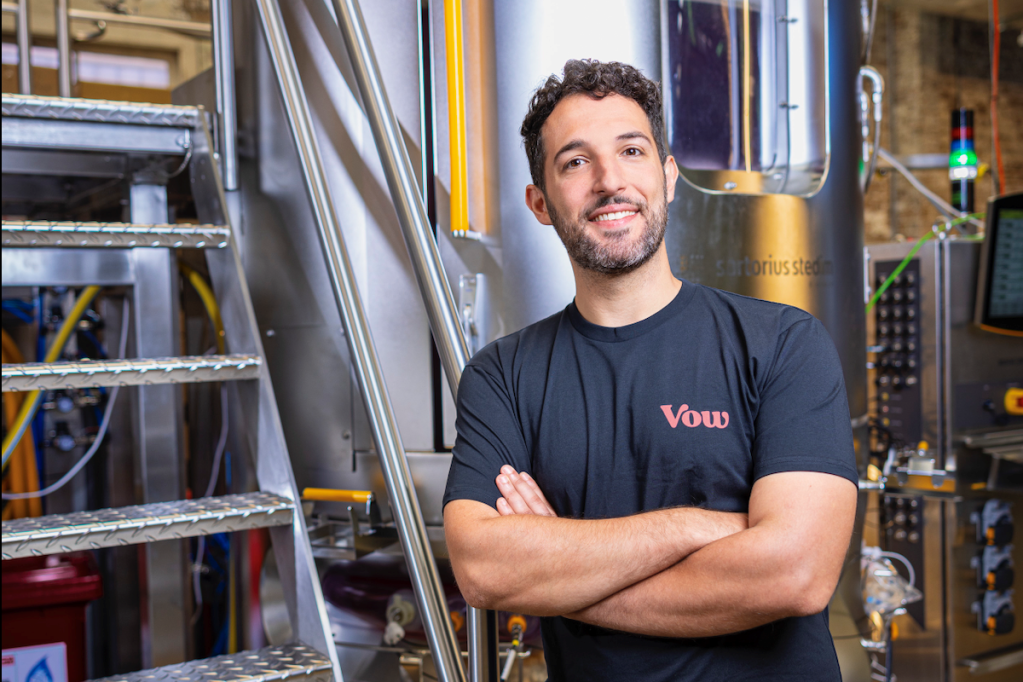The cellular agriculture industry has criticised the validity of a new study from the University of California, Davis (UC Davis), questioning the global warming impact of cultivated meat.
The study claims that cultivated meat’s environmental impact “is likely to be ‘orders of magnitude’ higher” than traditionally produced beef, based on current and near-term production methods.
According to UC Davis, researchers conducted a life-cycle assessment of the energy needed and greenhouse gases emitted in all stages of production for cultivated meat, and compared that to conventional beef. It found that the global warming potential of cultivated meat is between four and 25 times greater than its counterpart.

The findings are supported by Australia’s Paul Wood, Adjunct Professor at Monash University, who claims the economics of producing cultivated meat products at scale “just wont work”, and that the technology will be less sustainable than traditional red meat production.
“It might not be quite 25 times worse for the environment – but there are now multiple studies which have concluded that producing cell-based protein in a lab will be far more energy intensive when it’s produced at scale,” Wood said.
“In addition to these concerns, there is a distinct lack of nutritional data from the cell-based protein industry – and that’s not good. There are a lot of big claims, but no data whatsoever to back them up.”
Wood, who has led major research teams in Australia and the US, has had his own peer-reviewed paper on the future of cultivated meat published in Animal Frontiers. The paper notes the significant technical, ethical, regulatory and commercial challenges surrounding the commercialisation of cellular agriculture technologies.
The industry’s response
The cellular agriculture industry has a number of issues with the UC Davis study, the first being that it hasn’t been peer-reviewed.
Sam Perkins, CEO of Cellular Agriculture Australia, told Future Alternative, “It’s great to see more work done in this space, however, we invite [the study’s] readers to look at the assumptions and qualifiers behind the claims made in this and other similar pieces of work. Of critical note here is that the UC Davis paper has not yet been peer-reviewed.
“The summary of the UC Davis paper is presented as conclusive and should not be extrapolated or articulated as such. Instead, we view them as a set of challenges that need to be addressed rather than conclusive reasons cellular agriculture cannot contribute to a more ethical, accessible and sustainable food system in the future,” Perkins said.

“References to near-term timeframes, small-scale manufacturing processes, and the use of, for example, pharma/analytical grade ingredients are simply not representative of what the future of the sector could look like, especially given the immense advancements in recent years.
“We accept cellular agriculture is a nascent industry, with a range of challenges to commercialisation, however, for Professor Wood to call the aspirations of scientists and company founders who are at the forefront of these new industries “ridiculous” is disappointing, and inconsistent with supporting scientific advances,” Perkins said.
Perkins’ reference to pharma-grade ingredients is an important one. The study’s summary states that one of the current challenges with cultivated meat is the use of highly refined growth media, which it says is currently “similar to the biotechnology used to make pharmaceuticals.”
“If companies are having to purify growth media to pharmaceutical levels, it uses more resources, which then increases global warming potential,” said lead author and doctoral graduate Derrick Risner, UC Davis Department of Food Science and Technology. “If this product continues to be produced using the “pharma” approach, it’s going to be worse for the environment and more expensive than conventional beef production.”
However, using food-grade rather than pharma inputs significantly reduces the environmental impact of producing cultivated meat.

George Peppou, co-founder of Australia’s largest cultivated meat company, Vow, said the study doesn’t take into consideration the significant technological and processing advancements that the cellular agriculture industry is embracing.
“There is no new information [in this study],” Peppou told Future Alternative. “It is well established that in a worst-case production scenario with zero innovation or improvement from the highly costly and energy intensive baseline scenario, carbon emissions will be high. However, we have been diligently tackling these challenges and we at Vow have made significant progress in comparison to the highly flawed projections cited.
“One of the biggest assumptions in the original UC Davis study is that all inputs will be pharmaceutical grade. By the author’s own admission, “fine chemical or pharmaceutical production is more energy and resource intensive than bulk chemical production”. By switching to food-grade inputs, carbon emissions decrease well below the median values presented for a beef herd. Data has been shared by multiple companies demonstrating food-grade cell culture media components are fit-for-purpose,” Peppou said.
The debate will go on….
In just over a week’s time, Paul Wood and George Peppou, self-confessed ‘frenemies’, will continue this discussion on the viability and impact potential of cultivated meat at the inaugural CellAg Summit.
Taking place at Fishburners in Sydney’s CBD on 15 June, the conference will examine the role that cellular agriculture could play in feeding the world’s population in decades to come, focusing on the challenges that cell cultivation and precision fermentation businesses faces as they move towards commercialisation.

The program includes a debate between Wood and Peppou, titled, Can We Go Mainstream? and moderated by the CSIRO’s Michelle Colgrave.
You can register for the CellAg Summit here, and view the program here.
To stay up-to-date on the latest industry headlines, sign up to Future Alternative’s enewsletter.
Posted on:


